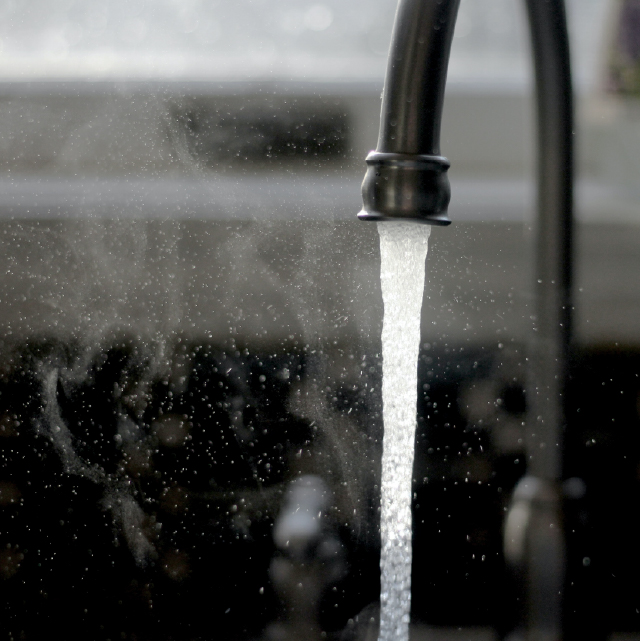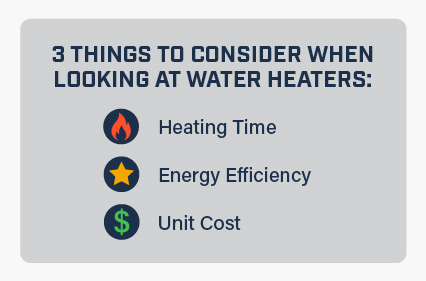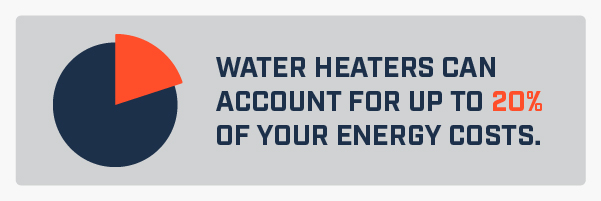
When selecting a water heater for your Portland home, there are a few factors to keep in mind. You’ll want a unit that can produce enough hot water for your family’s needs without extra energy output. Water heaters can account for up to 20% of your energy costs. So, the first step when choosing a water heater is to determine what energy-efficient heater is right for your home.
Storage Tank Water Heaters vs. Tankless Water Heaters
Residential water heaters can come in a few different forms, but the most common types are tankless and tank-based heating. They both have advantages and disadvantages depending on your needs, so knowing how they work can help you decide the best unit for your home.
Water Heater Tanks
As the name implies, tanked water heaters rely on a large reservoir designed for large amounts of water. To deliver hot water to your shower, sink, washing machine, and other appliances. The entire water tank is warmed up, then distributed to the necessary faucet. In order to heat the water, tanked heaters rely on natural gas, propane, or electricity. You can find models ranging in size from 40 to 55 gallons and up. The size of your tanked heater is essential for proper hot water distribution. An oversized unit means you will be incurring higher than necessary heating costs. If it’s too small, you’ll exhaust your hot water supply quickly.
Tankless Water Heater:
Tankless water heaters, also known as “on-demand” heaters, warm up water when a faucet is opened. Unlike tanked units, tankless does not store hot water or require warming up an entire tank. Instead, they heat the amount of water needed via an internal heating element. Tankless models come in propane or electric units and are much smaller than tanked units. A typical size runs 20”x13”x3”, which means it takes up less space in your home.
Which Water Heater is Right for You?
The second step in choosing a water heater is to look at the pros and cons of each. Remember, heating and cooling systems aren’t a one-size-fits-all solution.
Heating Time: Both systems need time to bring the water up to temperature.
- A tankless unit can take longer than a tanked heater and is sometimes associated with the “cold-water surprise.” One advantage that tankless has over tanked is once the hot water is flowing, it provides unlimited and constant hot water.
- For tanked heaters, how long it takes to heat up typically depends on the type of heater, electric storage tank water heaters can take about an hour and propane storage tank water heaters take roughly 30–40 minutes.

Energy Efficiency: Energy efficiency is a primary role in how much a unit costs.
- If you are looking for the most energy-efficient water heater, tankless wins, hands down.It’snearly 100% efficient and can reduce energy costs by 50%. This is because hot water tanks store water that can experience “standby” losses when heat evaporatesthrough the flue or sides of the tank.
- Modern tanked water heaters have gotten more efficient, but, only about 58-60% of the energythat is being used to heat yourwater is effectively converted into heat
Unit Cost: There is a wide range of pricing for both heating units.
- Tanked water heaters tend to be on the lower price spectrum, ranging from $200 to $1500, depending on the size.
- Tankless, however, comes with a higher initial investment. Units can start at $300 and shoot up to the thousands. However, tankless heaters can save on utility costs over time due to their high energy efficiency levels.
To ensure you make the best decision, compare the benefits and disadvantages of both systems before purchasing your new water heater. Work with a NATE-Certified technician to guarantee the unit you choose is installed professionally and accurately.
Residential Water Heater Maintenance for Your Portland Home
AAA Heating & Cooling can provide the right water heater for you and your family. Whether you want a new water heater, to schedule maintenance, or troubleshoot HVAC unit issues, we are here! Schedule an appointment with us today!
